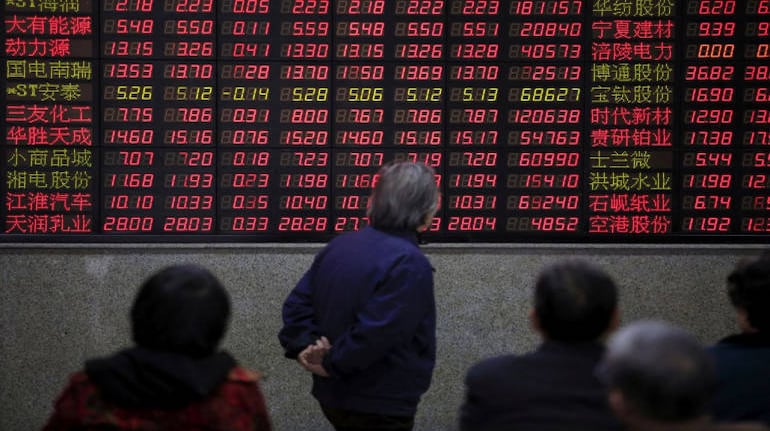



‘Past performance is not indicative of future returns’ is one of the commonly cited lines on any market-linked investment’s document. There are reasons for adding this disclaimer, and we all have read it and acknowledged it, but perhaps did so superficially. Deep down, ‘past returns’ are still the most followed criteria for selection of an investment product. The higher the past returns, the more comfort we find while committing our money. So, while many of us invest in schemes which are top performers with robust track records, more often than not, the returns that investors make are much less than the scheme returns.
Staying invested not easyMultiple studies have been conducted on this divergence. This gap is aptly called the ‘Behaviour Gap’ by Carl Richards. Let’s first understand this through some examples. Let’s take the Mirae Emerging Bluechip Fund. The scheme is celebrating 10 years of amazing performance; a compounded annual growth rate (CAGR) of 18 per cent is no ordinary feet. However, only 911 investors have stayed put throughout this journey of ten years. Today, the fund has close to ₹10,000 crores in AUM and 9 lakh folios. The figures are stark if we look at DSP Equity Fund. Launched in 1997, the scheme has delivered an impressive 19 per cent CAGR, but only 24 investors have stayed on since the start. These investors (and there are many such examples) have made money despite downturns in the markets wherein these schemes witnessed falls to the tune of 30-50 per cent over different periods of time.
Axis Mutual Fund studied returns for the period 2003-2015, and concluded that while equity scheme returns were 22.1 per cent, investor returns averaged at 15.6 per cent. A recent study by Motilal Oswal Private Wealth showed that the difference between the returns for a large-cap fund during the period 2002-2020 was a staggering 15 times.
It’s interesting to note that this phenomenon isn’t just limited to India; it’s prevalent across global markets. A study from DALBAR, a research firm studying Quantitative Analysis of Investor Behaviour, found that during 2018, the average investor underperformed the S&P 500 by 5.04 per cent points.
Checking investor behaviourMany of us would have a check list of things when it comes to investing in a scheme—track records, returns, scheme beating its benchmark, expense ratios, fund manager, and so on. But how many of us actually have a check list for our behaviour as an investor? Are we being greedy, are we panicking, are we being patient and disciplined?
Investors tend to be highly sensitive to notional losses. This feeling was summarized as, “losses loom larger than gains” by Daniel Kahneman and Amos Tversky in 1979. The paper they published highlighted that the pain of losing money is twice as strong as the pleasure associated with gaining the same amount. When the tendency of avoiding losses grows strong, one starts to only focus on how to ‘avoid losses’ at any cost. The tendency results in investors staying invested in a scheme for half of its cycle, and they unfortunately exit before seeing the better (and brighter) side of it. This is what hurts their returns.
Investors turn less risk-averse when markets tank and vice versa, thus taking the flight to safety during downturns and returning in a euphoric phase. The recent AMFI figures on net equity inflows highlight this trend. While many investors exited because they might be in need of cash during these times, many others exited as soon as they saw their funds recover the losses they witnessed during the months of March and April.
Further, investors are weighed down by a mix of confirmation and recency biases. They expect trends (upwards or downwards) to continue forever and are either smitten by impressive returns or scared of negative returns of the recent past. Driven by these biases, they find no merit in staying invested in schemes that have not performed well in recent times, while gravitating towards top performers. The tendency to ‘buy the best past returns’ and ‘sell the ‘low present returns’ plays the devil, which never allows investors’ money to compound and grow the way it is meant to.
The attempt to chase winners, panic and exit, exult and invest has always impaired the chances of success, and will continue to do so. It’s not to say that one shouldn't be analysing the portfolio or making changes to a portfolio, but the reason for doing that has to be ‘emotion-free’. A half-yearly review of one’s portfolio is healthy and essential. Process, patience, and discipline in investing can work wonders.
Just as in life, being a fair-weather friend isn’t the right approach in investing!
(The writer is the founder of FinFix®)Discover the latest Business News, Sensex, and Nifty updates. Obtain Personal Finance insights, tax queries, and expert opinions on Moneycontrol or download the Moneycontrol App to stay updated!
Find the best of Al News in one place, specially curated for you every weekend.
Stay on top of the latest tech trends and biggest startup news.